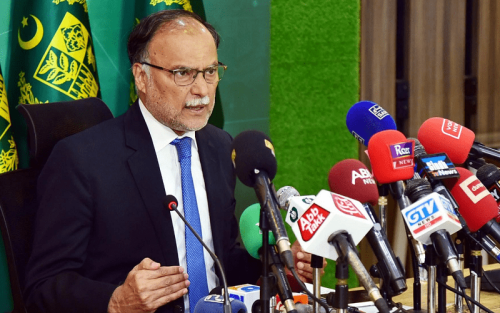• Fresh strategy eliminates minimum equity requirement
• Restrictions on foreign real estate developers lifted
• Plan aims to attract $20-25bn over next few years
ISLAMABAD: In a move to boost foreign and domestic investments, the government has approved a new investment policy for 2023 to attract investors by adopting best practices and providing an optimal investment climate.
The policy was created in accordance with Prime Minister Shehbaz Sharif’s formation of the Special Investment Facilitation Council, an apex body that includes the army chief and provincial chief ministers. The council’s goal is to facilitate foreign investment and remove obstacles that hinder investment inflows.
The Pakistan Investment Policy (PIP) 2023 has been given the go-ahead by the federal cabinet through the circulation of a summary. It is anticipated that the new policy will attract $20-25 billion in investment over the next few years. The policy is developed in consultation with the World Bank, International Finance Corporation, and provincial and federal institutions.
According to a copy of the policy seen by Dawn, it is based on four main pillars: reducing the cost of doing business, streamlining business processes, facilitating ease of doing business through the creation of industrial clusters and special economic zones, and promoting greater convergence between trade, industrial, and monetary policies.
The new policy eliminates the minimum equity requirement for foreign investment and permits foreign investors to invest in all sectors except for casinos, consumable alcohol manufacturing, arms and ammunition, atomic energy, high explosives, currency, and mining. Additionally, foreign investors will be able to remit their entire profit abroad in their own currency and will receive special protection.
Under the new policy, foreign investors will be able to lease land without restriction and transfer any land they hold without limitation. Restrictions on foreign real estate developers have been lifted, and there will be no distinction between foreign and domestic developers. Foreign investors will also be permitted to hold a 60pc stake in agricultural projects and 100pc equity in corporate agriculture farming.
The policy revolves around simplification of regulations, guidelines for setting up investment grievances mechanism for redressal of investment disputes, mechanism for awarding of incentives on the basis of performance and location, investors protection for the transfer of funds, expropriation, fair and equitable treatment and freedom for establishing a business in the country.
This development follows recent statements by Minister of State for Petroleum Musadik Malik, who said that Saudi Arabia and the UAE expressed strong interest in Pakistan’s information technology and agriculture.
According to the state minister, in an interview with a private television channel, Saudi has earmarked $24bn for investment purposes, while the UAE has allocated $22bn to explore opportunities in these sectors.
GDP-to-investment ratio
According to the World Bank, Pakistan’s GDP-to-investment ratio is projected to decrease from 15pc in 2020 to 13.3pc in 2024. The PIP 2023 aims to reverse this trend by progressively increasing the net foreign direct investment (FDI) ratio from an average of 15pc to 20pc.
According to the economic complexity index, Pakistan’s economy is becoming less complex. In 2020, Pakistan ranked 93rd out of 146 economies, an improvement from its 100th-place ranking in 2019 but a decline from its 89th-place ranking 20 years earlier. Increased FDI is expected to improve Pakistan’s economic complexity by diversifying its products and services for export and helping the country earn higher export revenues through value-added activities.
Pakistan’s economy has been hit hard by the coronavirus pandemic, floods, high inflation, and political unrest. Its foreign exchange reserves currently stand at $4.46 billion, while its external debt repayments will remain high over the next few years, with approximately $25 billion due in FY 2024.
It recently signed a staff-level agreement with the IMF for a $3 billion standby arrangement (SBA). The IMF’s executive board is set to review the arrangement on July 12, which could open up opportunities for Pakistan to bolster its reserves.
Published in Dawn, July 9th, 2023















































Dear visitor, the comments section is undergoing an overhaul and will return soon.